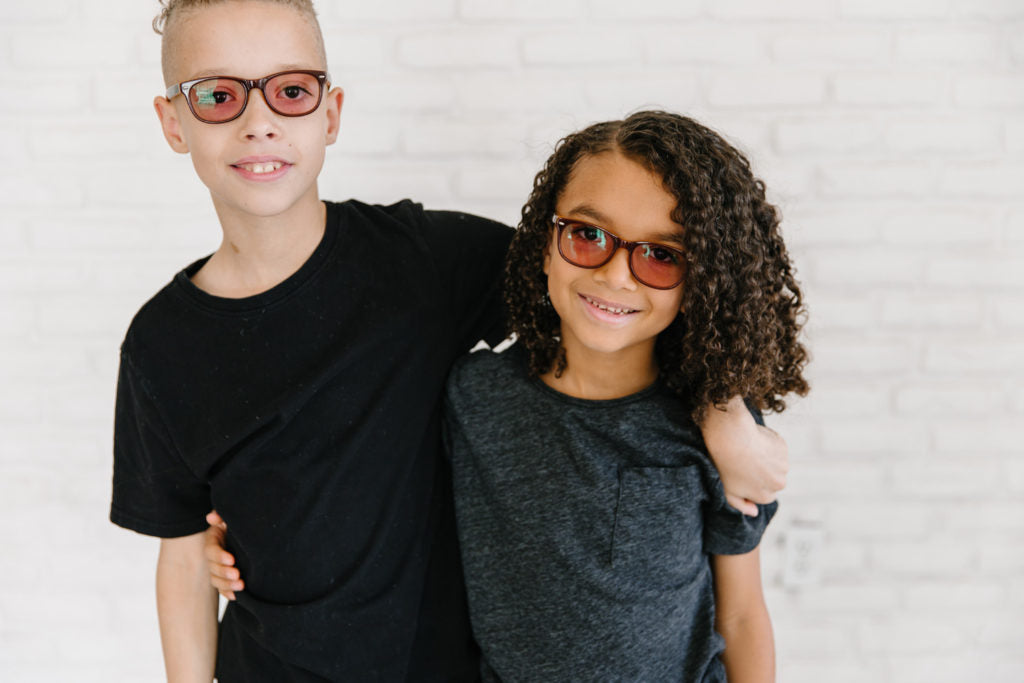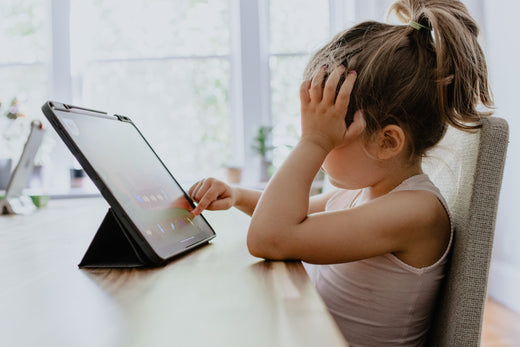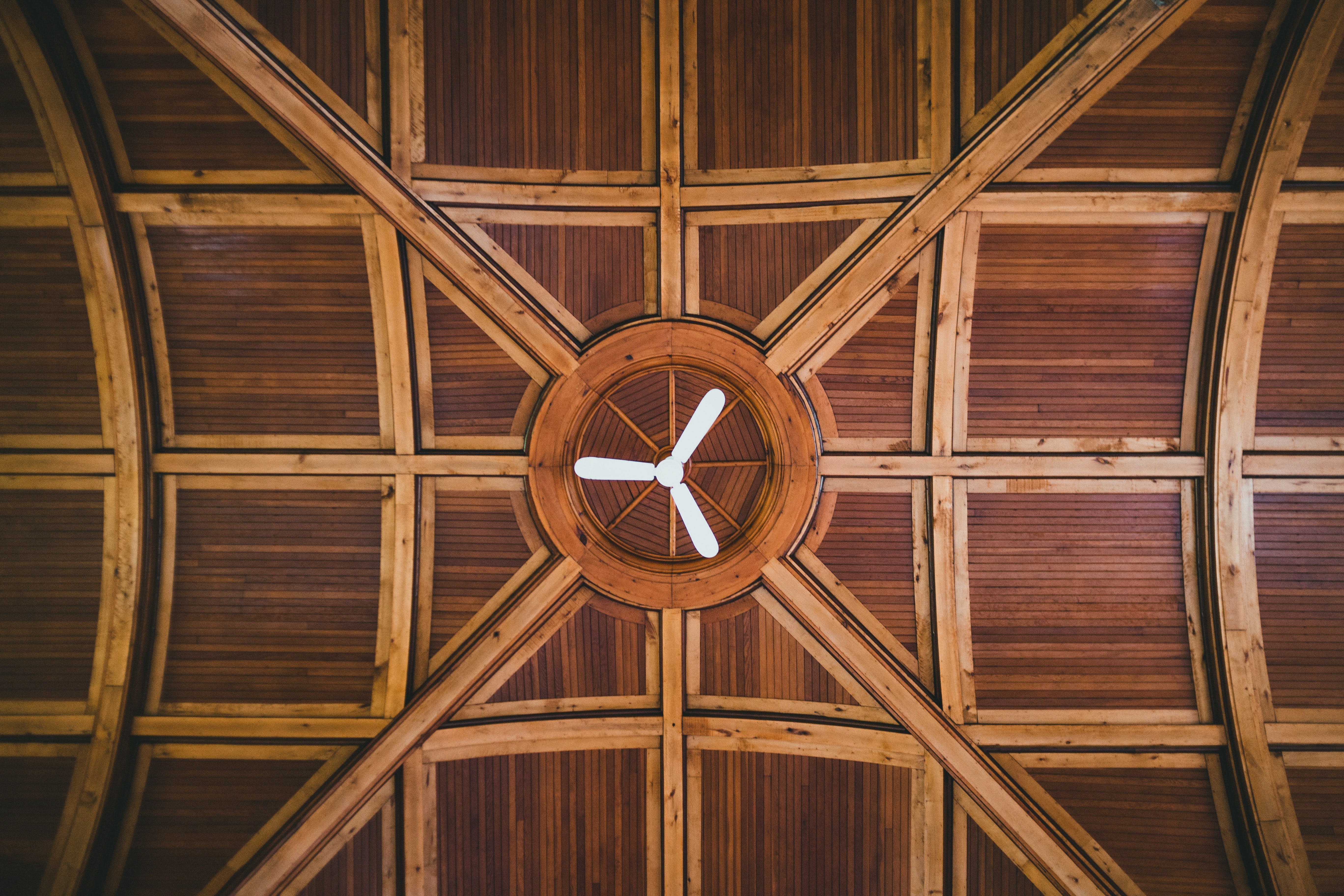Just like adults, kids tend to be exposed to many hours of screen time per day, between school work, TV, gaming, and smartphones. If you’ve ever worried about your kids’ exposure to the blue light those screens put out, you might have considered buying them a pair of blue blocking glasses.
This article will take a look at some different brands of blue light glasses. We’ll also discuss the effects of blue light and whether or not blue light glasses are likely to help.
Brands of Blue Light Glasses
Blue light glasses are made by a number of manufacturers, but some are better than others. An Amazon search will turn up dozens of choices, many of which come from brands you’ve probably never heard of. But let’s take a look at a few brands we know of. You can get your blue light glasses in your prescription for an extra fee.
Felix Gray
Felix Gray specializes in sunglasses and blue light glasses, and they also make contact lenses that work kind of like reading glasses. Their blue light glasses are among the most expensive, starting at $95 for non-prescription.
Quay
As an eyewear brand, Quay has regular eyeglasses, sunglasses, and (at time of publishing) 22 different styles of blue blocking glasses in their online store. Most of their blue blockers are in the range of about $50 without a prescription.
Everscroll by MVMT
MVMT makes stylish eyewear, but they also make jewelry and watches. So their blue light glasses might be great quality and look great on you. But they probably aren’t specialists in the blue light or light sensitivity department. Their blue light glasses start at around $80 without prescription.
Is Too Much Blue Light Harmful to Children?
It’s no secret that excessive screen time isn’t good for anyone, especially kids. The American Academy of Pediatrics recommends limiting children’s entertainment media like TV, gaming, and smartphone use. But still, American kids average 7 ½ hours of entertainment media per day (for adults, the average is 17 hours).
Excessive screen time is known to cause:
- Behavior issues, possibly related to shorter attention span
- Educational problems, especially for school-aged kids with TVs in their bedrooms
- Obesity from being too sedentary
- Sleep disturbances related to digital light affecting the sleep cycle
- Using violence to solve problems
Most adults would agree that too much screen time is bad for any child from a social, emotional, and physical activity standpoint.
Additionally, overuse of screens is said to contribute to symptoms like eye strain, dry eyes, blurred vision, headaches, insomnia, and poor posture.
But is the blue light emitted from digital screens really harmful to children, or is it something else causing the negative symptoms? And more importantly, are blue light blocking glasses the solution?
Why Blue Light Glasses Likely Aren’t the Solution
Blue light glasses might seem like a good idea on the surface, but let’s take a look at what science has to say.
While it’s tempting to buy blue light glasses for your kids (sometimes called computer glasses), it should be noted that blue light isn’t limited to computers. It’s everywhere.
While screens do emit blue light, so do LED lighting, fluorescent lighting, and the sun. In fact, the AAO asserts that you’re likely to get much more blue light from the sun than you do from a computer on any given day.
Digital eye strain aside, the AAO doesn’t necessarily equate blue light with eye damage. This 2021 statement made in an article sums it up:
“There is no scientific evidence that the light coming from computer screens is damaging to the eyes. Because of this, the Academy does not recommend any special eyewear for computer use.”
The article goes on to cite a recent study that suggests blue light glasses do not help with symptoms associated with digital eye strain, further stating that:
“The American Academy of Ophthalmology does not recommend blue light-blocking glasses because of the lack of scientific evidence that blue light is damaging to the eyes…The best way to find relief from eye strain is to take breaks.”
So if your kids’ eyes feel irritated after spending time looking at screens, the best thing to do is have them take a break from the computer, TV, or other device. That will probably help them more than anything else, including blue light glasses.
What About Kids With Photophobia?
For photophobia, blue light glasses for kids may be just as ineffective as they appear to be for adults.
Blue light glasses are not a substitute for photophobia glasses, which are precision-tinted to block only the wavelengths of light most likely to trigger symptoms of photophobia, including migraine, discomfort, dry eye, nausea, dizziness and more.
If you have a child with this condition, Axon Optics light sensitivity glasses should be considered a viable treatment option. If your child wears prescription glasses, Axon Optics can be made with that prescription. We even have a kid-sized frame.
Some Actual Benefits of Blue Light Blocking Glasses

While there is a lack of evidence to support the claims made by some makers of blue light glasses (specifically the claim that they will prevent “eye damage” from screens), that doesn’t mean that there are zero potential benefits. Some of those include:
- Sleep quality – Some studies suggest that wearing blue light blocking glasses may improve sleep quality and duration. This has to do with the potential effects of blue light on circadian rhythm.
- Falling asleep – Since melatonin is a hormone that helps us feel drowsy, and blue light exposure may suppress melatonin release in the body, it makes sense that blocking blue light may make it easier to fall asleep.
- Less eye dryness: If you or your kids seem to have dry eyes after long hours on the computer, some say blue light blocking glasses can alleviate this.
Keep in mind that in order to reap these potential benefits, the blue light blocking glasses you buy must be of good quality, and actually block the blue light. Many blue light filtering lenses available online don’t actually do what they claim. Some of the more reputable brands include Felix Gray, Jonas Paul, or Everscroll by MVMT.
But again, if you have a child who suffers from photophobia or frequent headaches, Axon Optics glasses for light sensitivity and migraine are a better option than blue light blockers.
How to Ease Eye Strain (for You and Your Kids)

The AAO offers the following tips to help potential ease eye strain from digital screen exposure:
- Don’t sit too close to the computer screen; aim for about 25 inches between your eyes and the screen, with a slightly downward gaze.
- Take regular breaks; every 20 minutes, look at something else at least 20 feet away for at least 20 seconds before looking back at your screen.
- Adjust the lighting in the room and increase the contrast of your screen.
- Use a screen filter if necessary.
- Use artificial tears if your eyes feel dry.
- Give your eyes a periodic break from contact lenses by wearing your glasses instead
As we discussed in a recent article, blue light blockers don’t appear to be harmful even if you wear them all day. That said, science doesn’t seem to back up blue light glasses for children or adults as a reliable way to avoid digital eye strain.
Here’s the Bottom Line
Just how harmful blue light may be is definitely up for debate. That said, if you are looking to help your kids avoid the effects of blue light, then a good quality pair of blue light filtering glasses may be of some help. However, simply taking frequent breaks from blue light is likely to be a much better solution.
On the other hand, if you’re looking to reduce symptoms of light sensitivity or migraine, blue light filtering glasses are unlikely to help, and taking breaks may not be enough. Try Axon Optics instead. Our precision-tinted lens is engineered to filter out harmful light (namely blue and amber ) at school and elsewhere, including computer use, shopping, and every other lighting condition.
References
Zhao Z.-C., Zhou Y., Tan G., Li J. Research progress about the effect and prevention of blue light on eyes. Int. J. Ophthalmol. 2018;11:1999-2003. doi: 10.18240/ijo.2018.12.20. [ PMC free article ] [ PubMed ] [ CrossRef ] [ Google Scholar ]
S. Singh, L.E. Downie, A.J. Anderson. Do Blue Blocking Lenses Reduce Eye Strain From Extended Screen Time? A Double-Masked, Randomized Controlled Trial. American Journal of Ophthalmology. February 11, 2021
American Academy of Ophthalmology. (2018, August 6). Is Too Much Screen Time Harming Children’s Vision?https://www.aao.org/newsroom/news-releases/detail/is-too-much-screen-time-harming-childrens-vision
KFF. (2015, March 3). Generation M2: Media in the Lives of 8- to 18-Year-Olds.
https://www.kff.org/other/event/generation-m2-media-in-the-lives-of/
Morin, A. (2020, September 17). How Too Much Screen Time Can Hurt Kids and Their Families. Verywell Family.
https://www.verywellfamily.com/the-negative-effects-of-too-much-screen-time-1094877
Vimont, C., & Hazanchuk, V. (2021, March 10). Should You Be Worried About Blue Light? American Academy of Ophthalmology.
https://www.aao.org/eye-health/tips-prevention/should-you-be-worried-about-blue-light
WebMD. (2020, October 3). How Blue Light Can Affect Your Health.
https://www.webmd.com/eye-health/blue-light-health






